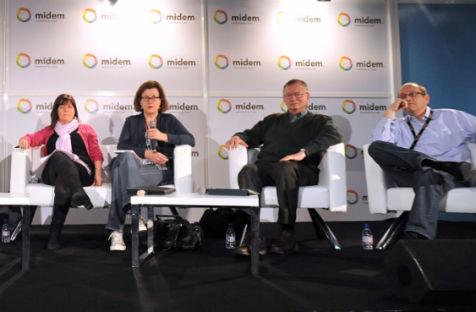Over the last 12 months, the Global Repertoire Database working group has been hard at work on its project to create the first ever authoritative database representation of global ownership and control of musical works.
This project will provide comprehensive details on publisher and songwriter rights, ensuring that the right people are paid the correct amount of money whenever a song is played online or through mobile devices.
Representatives from various organisations and backgrounds make up the GRD working group, who has recently announced the completion of a scoping study and the beginning of a requirements and design phase. They believe that 2013 will be a milestone year for the project as it moves forward towards an expected 2015 completion.
‘ICMP and its music publisher members around the world are committed to the development of the Global Repertoire Database which will benefit all those who have a stake in improved music licensing processes including creators, music publishers, collecting societies, music suppliers and fans of music everywhere,’ Chair of ICMP Andrew Jenkins said in a press release. ‘Indeed, it is impossible to argue against the benefits of the GRD for the wider community and all of us involved are working together to deliver something that will be a game-changer for the industry.’
The benefits of a uniform global ownership scheme includes saving great costs currently lost due to duplication of data processing, fewer unallocated royalties and greater revenue opportunities. The implementation of such a scheme will also ensure that musicians are better compensated for their work.
‘The GRD marks a crucial initiative in improving the operational efficiency of the whole licensing process for musical works for all stakeholders and will help ensure that creators of music are quickly and efficiently compensated for their work,’ composer and GRD Working Group member Jörg Evers said.
The project is currently being supported by 13 music management societies who have given the GRD Working Group access to their databases and also provided them with funding and further knowledge. Although the Working Group is made up of 14 representatives, there are nearly 30 companies and approximately 100 individuals involved in the project all over the world. This collaboration with various global organisations is one of the key strengths of the project.
‘Authors’ societies recognise that collaborative projects such as the GRD are an important tool in the online world for the administration of the intellectual property rights of the creators and the publishers who make up their membership,’ CEO of Australasian music copyright society APRA|AMCOS Brett Cottle said. ‘The GRD will benefit from the significant expertise and experience that societies have gained in the management of copyright data and an impressive number of societies are prepared to support this ambitious project.’
The group is currently working on the design phase of the project, which is expected to be complete by May. This stage focuses on the business requirements and rules of the database as well as determining a definition of the GRD logical data model.
‘As a digital music service provider we fully support the activities of the GRD because a fully functional GRD will make it easier to operate in the online music world, reduce barriers to entry and thus enable a growing and viable digital music market to the benefit of all stakeholders and most importantly consumers,’ said Jez Bell, Chief Content Officer for Omnifone representing music service providers on the Working Group alongside Apple and Google.
If all goes according to plan, the system will begin to be built in 2013. The first release of the database is expected to take place in 2015.





